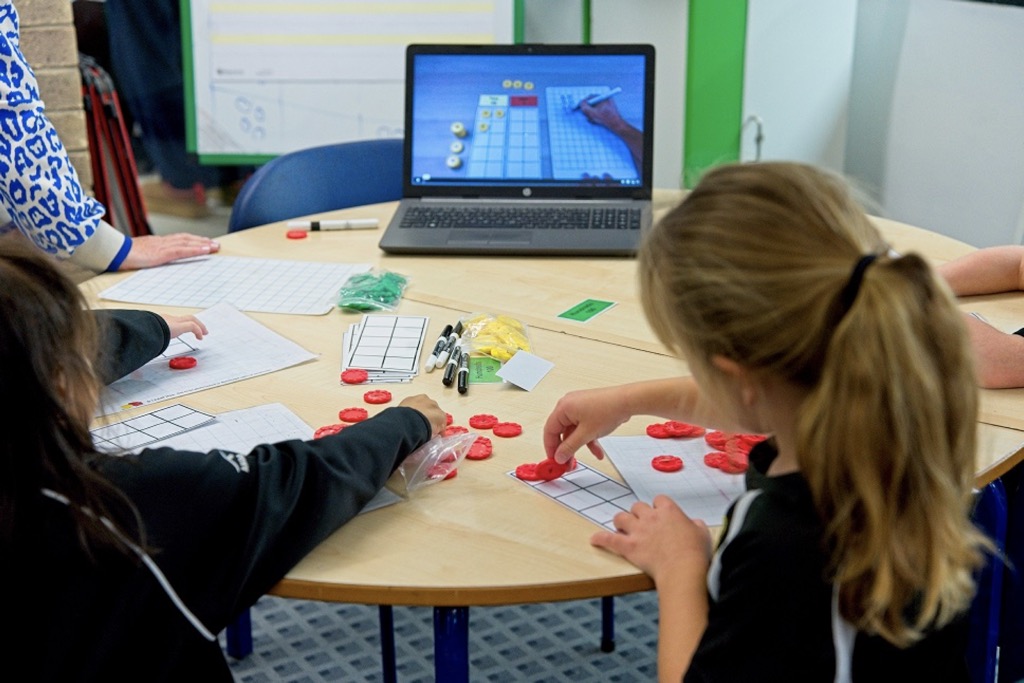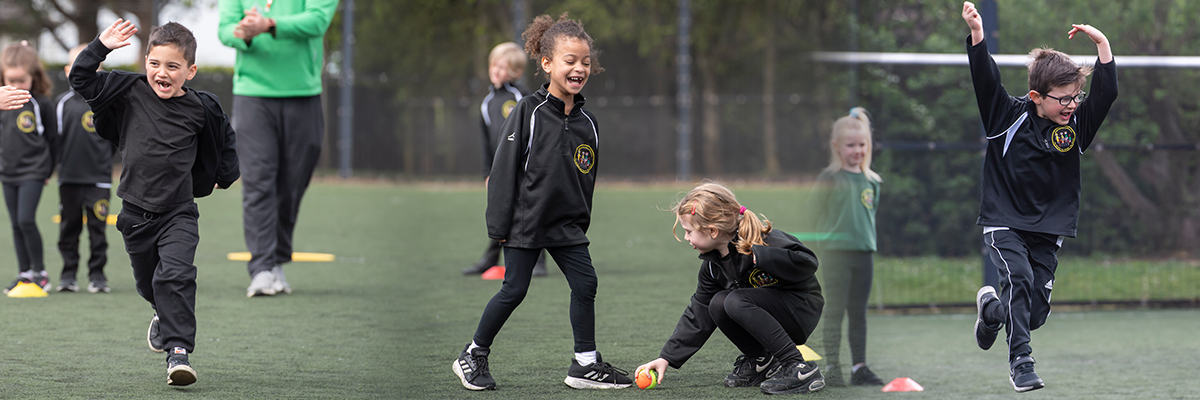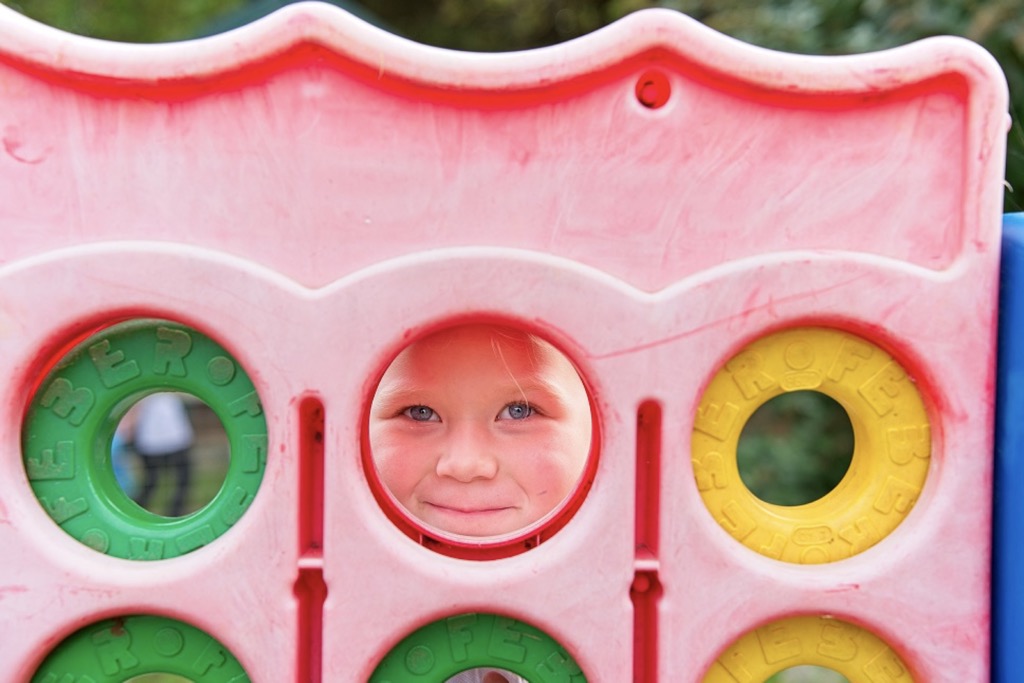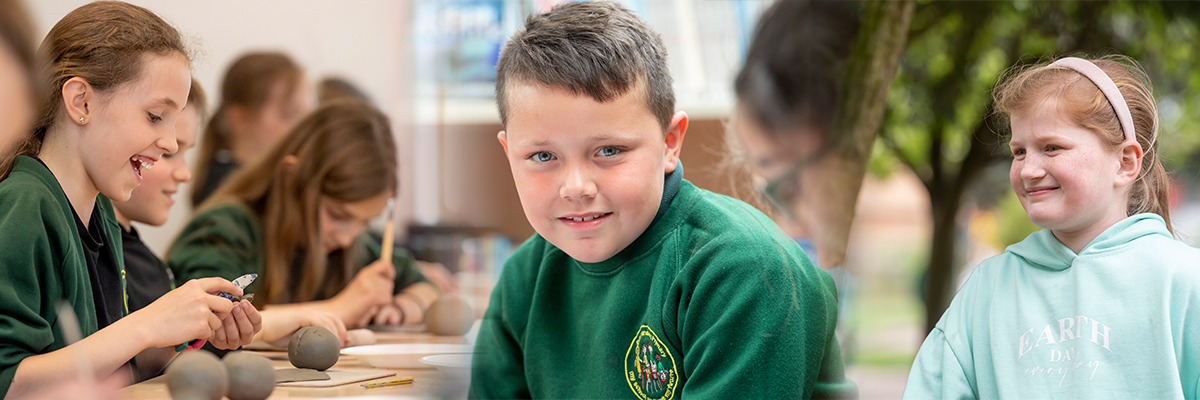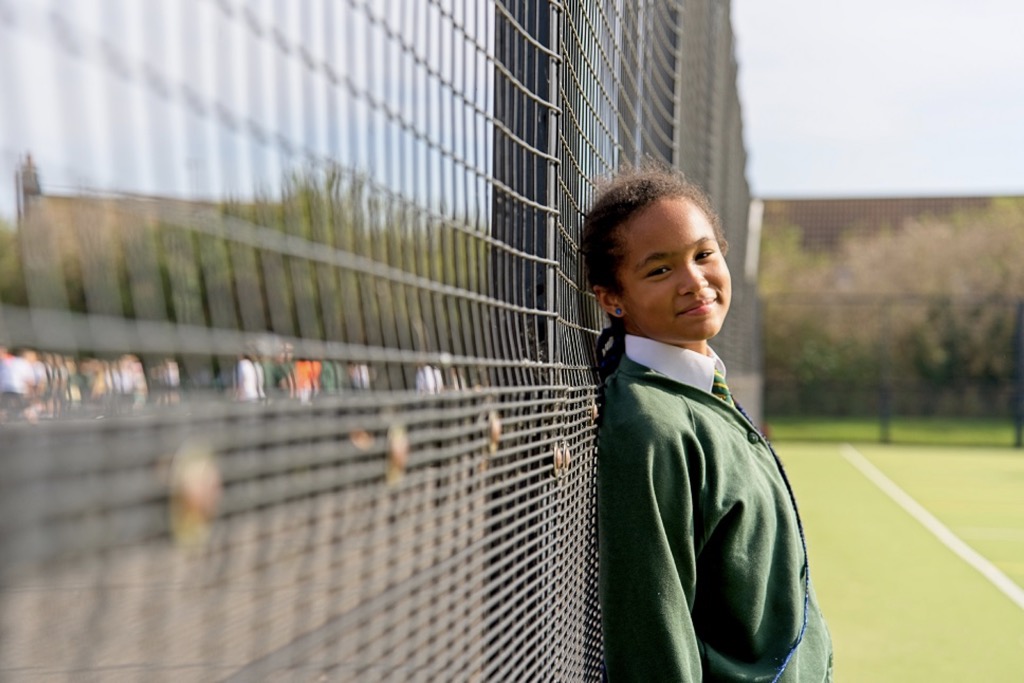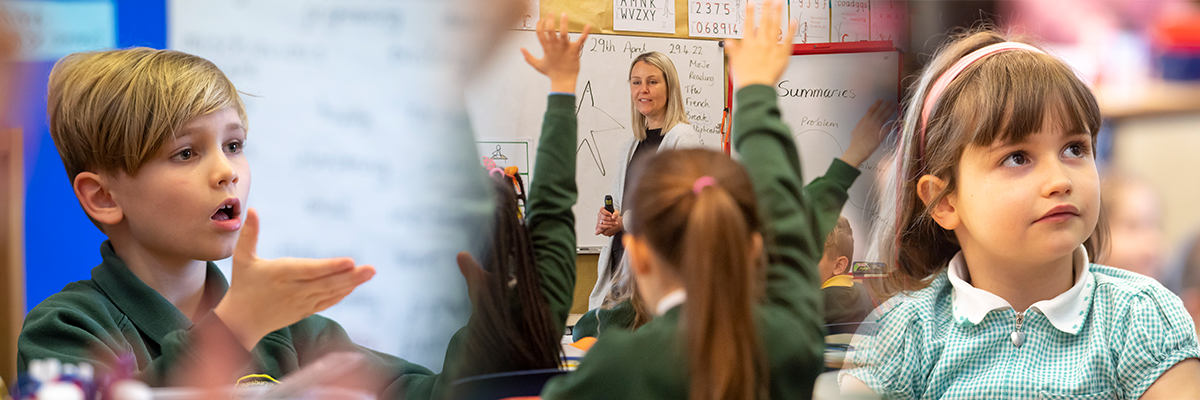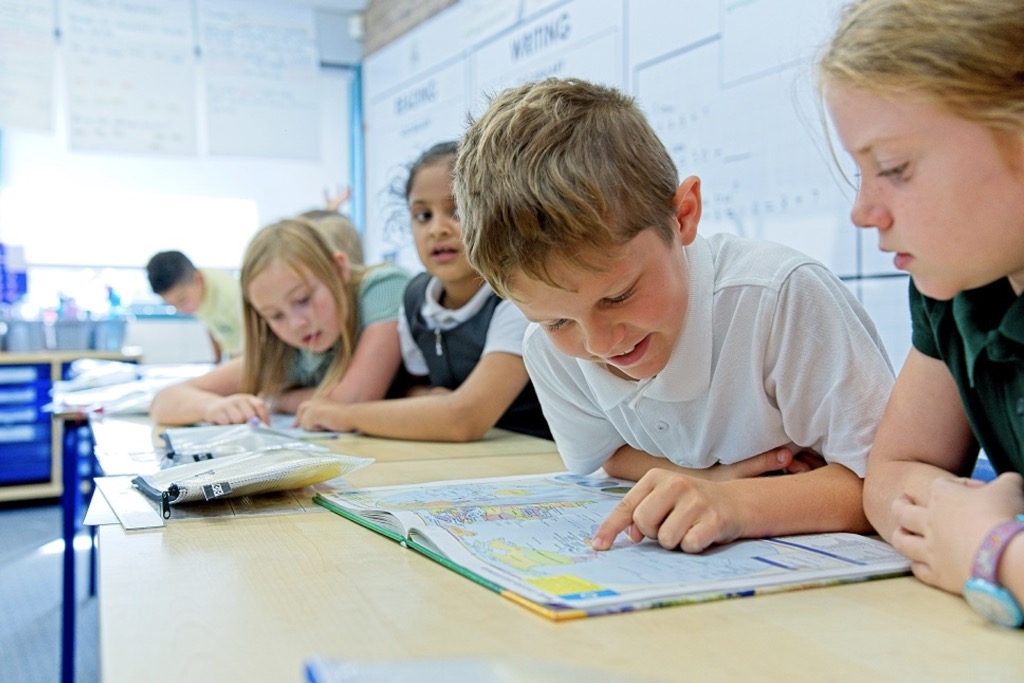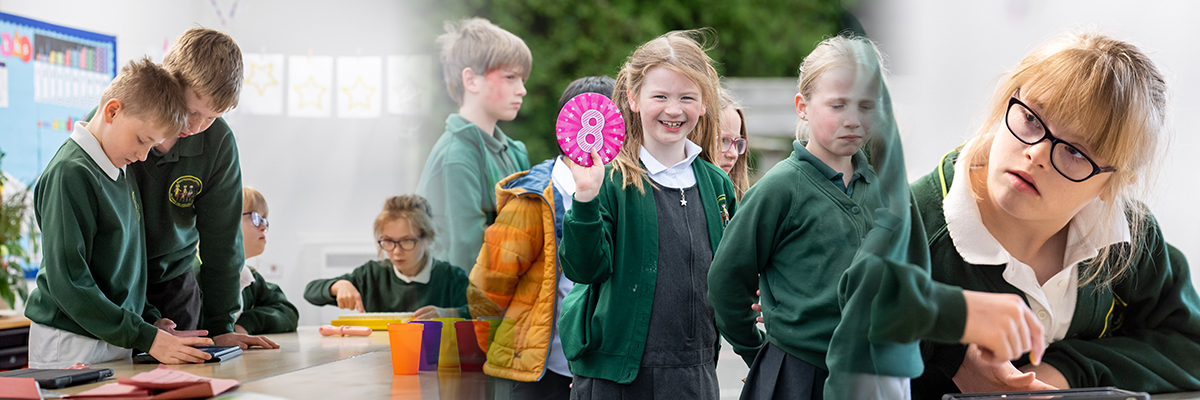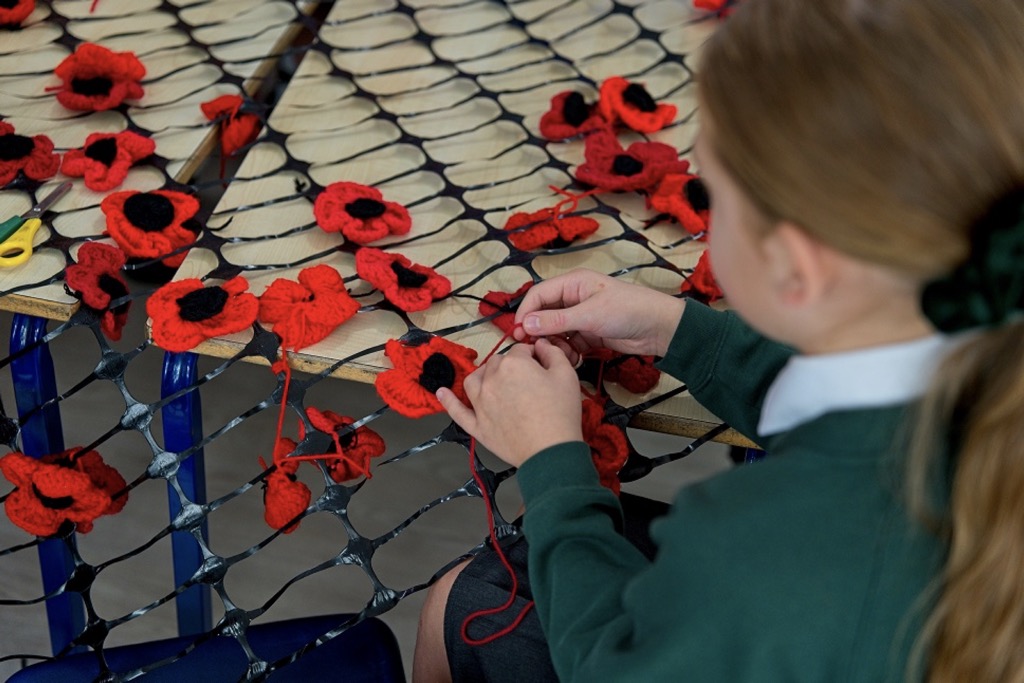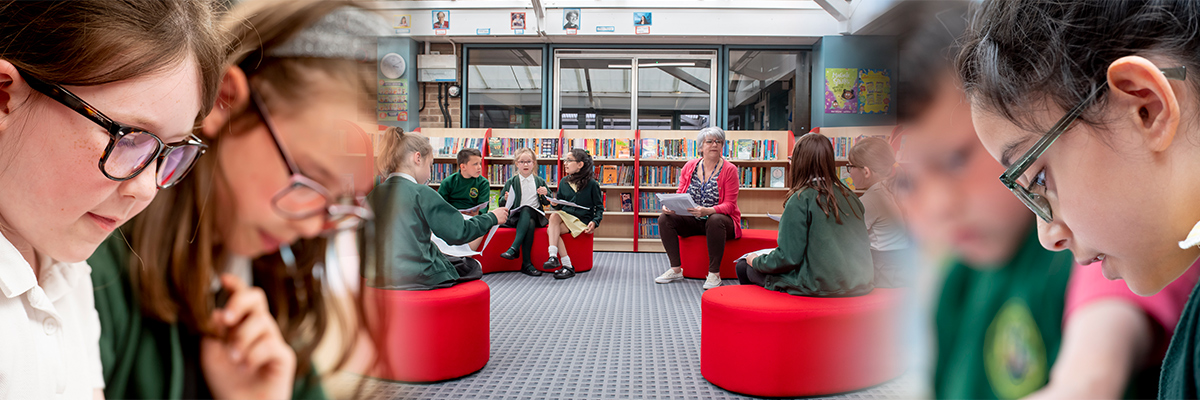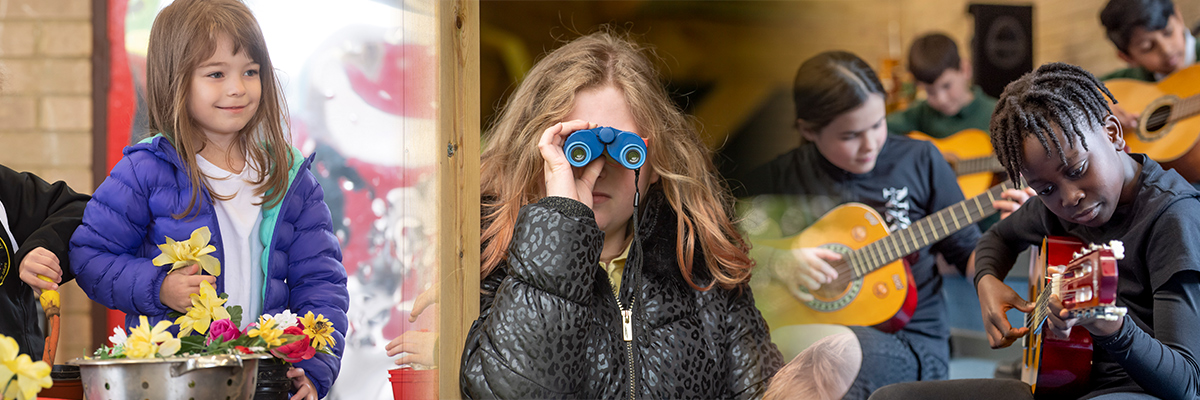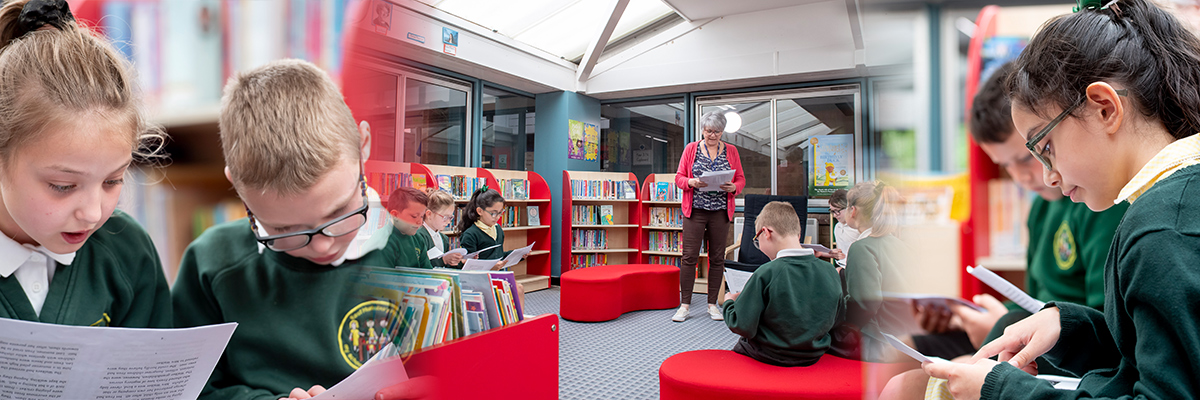Our Curriculum : Physical Education
It is our intention that Physical Education (PE) at EHPS is aspirational, enabling and inclusive. We intend for our curriculum to:
- Be ambitious for all our pupils.
- Inspire all pupils to enjoy, succeed and take part in a range of physical activities including gymnastics, dance, games, competitive and non-competitive sports, which develops competence in the Gross Motor skills and Fundamental Movement Skills.
- Provide opportunities for pupils to become physically confident in a way which supports their health and fitness.
- Provide our children with ambitious opportunities to compete in sport and other activities to build character and help to embed core values such as fairness, sporting behaviour and respect.
- Teach our children a range of sports and allow opportunities for children to continually develop an understanding of these, whilst applying and using a range of rules, strategies and tactics.
- Teach our children how to live a healthy and active lifestyle and understand the importance of health living and healthy participation.
- Develop an understanding of the benefits sport can have on their physical and mental health as well as raising their self-esteem.
- Teach our children about the world of sport including athletes and significant competitions e.g. the Olympics and World Cup etc.
- Be taught by highly skilled practitioners.
Every child at East Hunsbury Primary school receives at least 2 hours of PE a week. The children are also given brilliant opportunities at break times and lunchtimes, through specialist coaches, to take part in physical activities and develop and foster a love for PE/sport.
At East Hunsbury, we use Real PE as our whole school PE approach. We chose this curriculum because it is inclusive of the SU and EYFS and marries our schools’ sporting and physical education philosophy.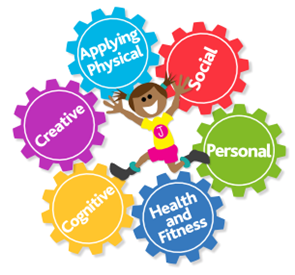
In Real PE, the pupils are taught about developing a whole range of skills via the ‘learning cogs’. These cogs have a specific focus which will be developed throughout the curriculum and are taught via a range of activities and games-based scenarios. Throughout a session, each learning cog skill will also be aligned with a fundamental movement skill, which will be focussed on within the session.
Due to our drive for ambition, we currently engage Specialist Sports Coaches to deliver some of our PE curriculum.
All children, by the time they leave Key Stage 2, will have been given the opportunity to attend swimming lessons and learn to swim 25m. We use part of our Sports Premium to fund ‘Top Up’ lessons for those that require it.
The impact of our PE curriculum is assessed through a multi–faceted approach including:
- The Real PE Assessment Cog and REAL PE assessment process.
- Teacher observations and questioning.
- Children participating well in PE lessons, demonstrating the ability to work individually, work with others and cooperate and contribute to working as a team.
- Pupil voice: children talking positively about games, gym and dance, and children understanding the importance of a healthy lifestyle and being able to discuss this with others.
- Children learning to swim 25m by the end of Key Stage 2.
- Attendance at extra-curricular clubs by pupils of all ages.
Pupil attainment in PE is recorded on Insight annually at the end of the summer term.
Pupils at East Hunsbury Primary school have 4 hours of PE over a two-week period. Children are taught by their class teacher using the Real PE platform and alongside this they are taught by a specialist sports coach who provides them with an opportunity to practice, use and apply the skills they have been taught in games-based scenarios. This enables children to have a brilliant insight into how skills are used across a variety of sports and ensures they realise the importance of the fundamental movement skills taught within the Real PE lessons.
Children will also encounter the importance of PE within their wider curriculum lessons through diagonal and horizontal links. For example, in science, children learn about a healthy and balanced diet during the nutrition topic in Year 3 and link this to the effect of a healthy balanced diet on fitness and physical education. They also investigate the effect that exercise has on the heart rate and the circulatory system in Year 6.
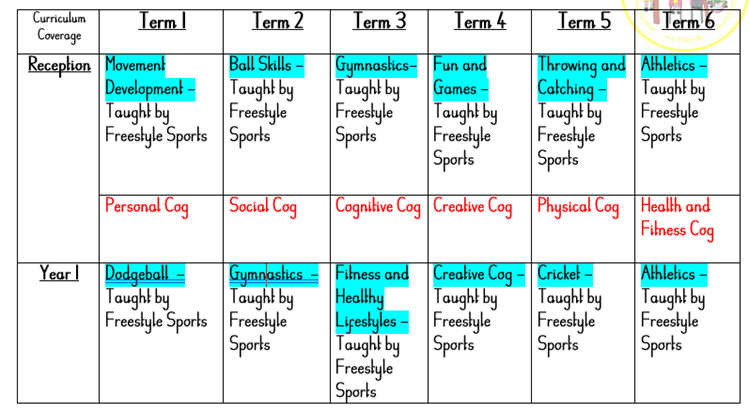
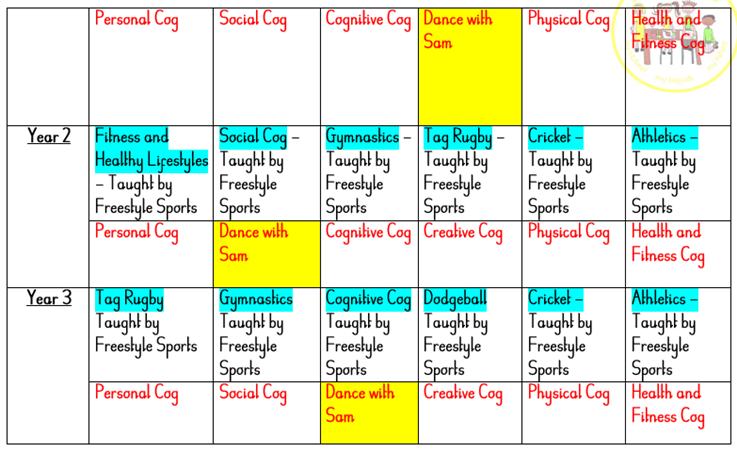
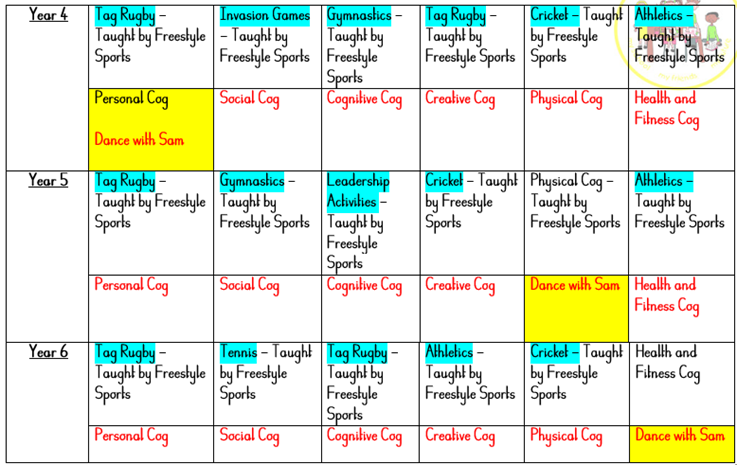
From the start of the Early Years, we immerse our pupils in a love of PE, fostering the fundamental movement skills alongside teamwork and co-operation. It is here where our ambition and brilliance for our children in sport and physical education really begins.
We begin Real PE in the Early Years as it complements their learning in: Personal Social and Emotional Development (PSED), Expressive Arts and Design (EAD) and Personal Development (PD) lessons. In addition, the children will learn to:
- Be confident in trying new activities with independence
- Explain the reasons for rules and know how to follow them
- Manage their self-care needs
- Work and play cooperatively
- Negotiate spaces and objects safely
- Demonstrate balance, strength and coordination when playing
- Move energetically, such as running, jumping, skipping, climbing and dancing
- Perform rhymes, songs, poems and stories with others and try to move in time with the music.
Our curriculum ensures that there is cumulative and progressive learning from the Early Years into, and beyond, Year 1. In Key Stage 1, the children continue to develop their Real PE learning cog skills and fundamental movement skills and, throughout this time, they become increasingly competent and confident in accessing a broad range of opportunities to extend their agility, balance and coordination, both individually and with others. The children will engage in competitive, non-competitive and co-operative physical activities, in a range of challenging situations. Throughout the key stage, the children will take part in a variety of games, gymnastics and dance activities which are all aligned to the National Curriculum requirements. These plans are tailored to each year group and have a particular focus on a specific ‘learning skills cog’ per term.
In Key Stage 2, the children will further develop the use of their Real PE learning cog skills as well as the fundamental skills which have been taught in Key Stage 1. The children will also build their understanding and knowledge of health and fitness and how this relates to other areas of the curriculum, for example diet and nutrition, muscles and mental well-being. Pupils will continue to apply and develop their learning cog skills through a range of competitive and non-competitive games and scenarios so that they become confident movers with secure motor competence and a positive relationship with physical activity.
At East Hunsbury Primary School, we offer a wide range of enrichment opportunities for our pupils:
- Pupils can take part in a variety of games, gymnastics and dance activities and events hosted by different sporting communities such as Northampton Saints, Northampton Town Football Club and Northamptonshire County Cricket Club.
- We regularly take part in competitions hosted by NSport such as Cross-Country Running, Tag Rugby, Netball, Inclusive Archery and Arrows and Badminton.
- Children in Year 5 take part in an intensive 4-day Bikeability training programme, equipping them with the skills and confidence to cycle on today’s roads.
- A specialist dance teacher works with pupils in our mainstream and specialist unit to produce dances of a very standard. These are frequently showcased to other schools in the Northampton Primary Academy Trust (NPAT) and through participation in the annual Derngate Arts Festival.
- We offer a range of before and after school extra-curricular clubs, many of which are taught by external agencies. We believe that using external agencies allows specialist subject knowledge to be passed onto the children and supports them to develop and foster a passion for a particular sporting area.
- We offer both competitive and non-competitive activities which develops a strong ethos of teamwork and respect.
Our PE curriculum promotes the British Values throughout the pupils’ time at East Hunsbury. Some examples of this include:
Democracy:
- Pupils are taught about the need for different roles and responsibilities, including teamwork and decision making.
- Pupils know how to behave in PE in a way that is socially acceptable.
- Pupils understand and accept the roles of captain, vice-captain, team players, coaches and volunteers.
- Pupils work individually and in teams and make informed choices.
The Rule of Law:
- Pupils are taught about age-appropriate rules, fairness and respect through a variety of PE activities.
- Pupils learn to work individually and in groups.
- We have an established ethos with regards to how to win and lose fairly and understand how to be a good sportsperson.
- Competition against oneself is encouraged in addition to competition against others.
Individual Liberty:
- Pupils recognise and respect individual differences and are confident to express their opinions whilst respecting others’ views.
- The views of individual pupils are listened to and respected within an acceptable framework.
- Pupils are taught safely and about how to be safe.
- Pupils can make judgements about their own and others’ performances.
Mutual Respect and Tolerance:
- Pupils are taught about historical, cultural and religious differences, through a variety of PE activities.
- The culture in PE respects cultural differences.
- Pupils are taught about the environment and different activity contexts.
- Pupils will know, understand and be able to articulate different styles of dance and the historical aspects of various activities.
- Pupils avoid stereotyping groups.
- Pupils can articulate their own beliefs.
- Pupils respect PE equipment and school buildings/facilities.
The nine protected characteristics are actively promoted throughout our school curriculum and we ensure that children are provided with opportunities to develop age-appropriate knowledge and understanding of all protected characteristics. For example, within the PE curriculum, we teach the pupils about sports people from different backgrounds and those with and without protected characteristics; we teach about race and heritage not being a barrier to accessing sport or achieving success; the inclusivity of sports and how all sports can be adapted to support different and varying forms of disability; the importance of understanding how and why gender reassignment could impact sports and the need for guidelines to protect both the athletes and the sport; and the need to remove any barriers or preconceptions around each protected characteristic to ensure equity for all.
PE at East Hunsbury Primary School is inclusive by design and ensures that everyone can access the learning through quality first teaching. By using Real PE as a vehicle for delivering brilliant lessons, teachers can provide suitable adaptations where applicable. For example, children use balloons and scarves instead of balls when catching to reduce the speed; equipment with bells in, if they are working with someone who has a sight impairment; changing the distance or height of equipment or varying the language used. Children within our Specialist Unit and some children within the mainstream also access yoga, horse riding, disability sports and sensory circuits. Support for disadvantaged pupils, and those with SEND, is individualised, based on careful consideration of the children’s needs, and ensures everyone has what they need to succeed and secure the knowledge and skills associated with our PE curriculum.
The PE curriculum has close links with our school education teams, particularly the ‘Health and Wellbeing’ team. These links provide children with further opportunities to practise their own skills and deepen their understanding beyond the curriculum. For example, children can participate in weekly PSHE or PE based activities which are suggested in the school newsletter. The ‘Healthy Mind, Healthy Body’ challenges enable children to work individually or in small groups to further develop their agility, balance or coordination.

